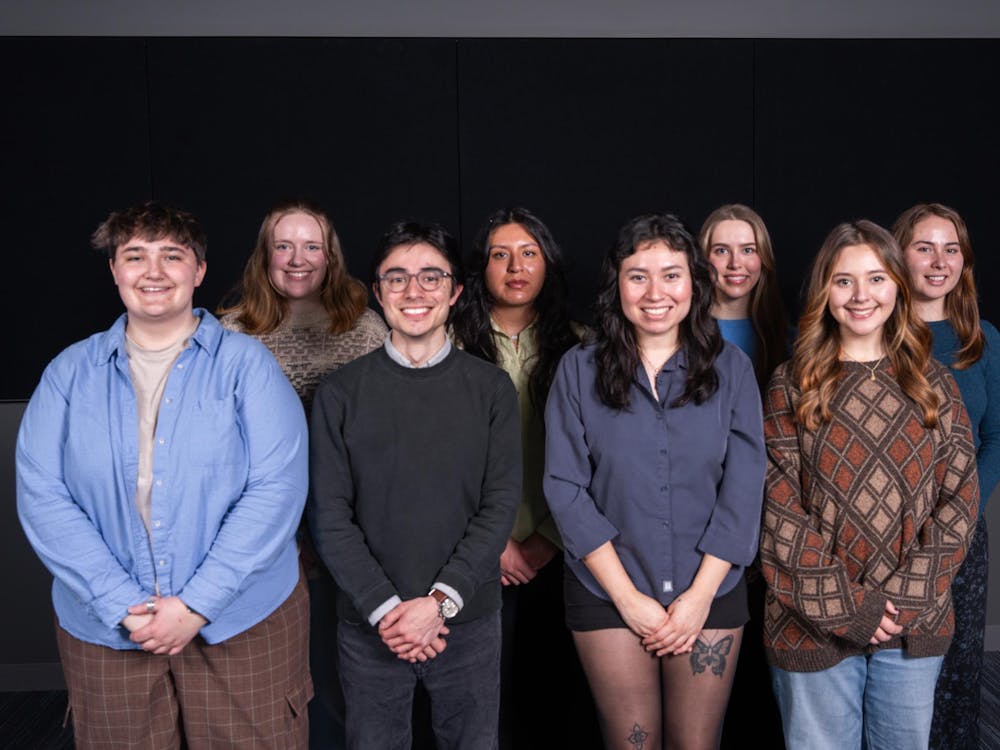(Photo courtesy of fromthebarn.org)
By
The cover story in last week's issue of Newsweek posed the question, "Is College a Lousy Investment?" Correspondent Megan McArdle argues that investing in a college education can be a terrible decision and the business of higher education is starting to look an awful lot like the housing and dotcom bubble right before it burst. While Newsweek points out the mounting obstacles and challenges for many individuals seeking a college degree, a University of Portland education stands up against many of McArdle's criticisms.
The fact of the matter is that the cost of college has increased twice as fast as other goods and services over the past two decades, yet having a college degree is more and more important to getting a job after graduation. McArdle contends that this increased cost makes college inappropriate for students who do not know what to major in and whose families are too stretched to provide support due to the large debt students have to take on.
With college loan debt eclipsing credit card debt as the highest source of loans to be paid back in the U.S., McArdle may just have the economic argument against college nailed. A lot of times students forget the purpose of taking out loans: to invest money that will help you generate money later. Unfortunately, in today's job market the likelihood of getting a job right out of college that will generate the kind of income needed to pay back student loans is incredibly low. As long as college students have to take jobs that they are over-educated for, student debt will be a debt they have for a long time. McArdle uses the example that 15 percent of our mail carriers now have college degrees.
McArdle's bleak but candid outlook may be true, but college grads are still more likely to get a job and earn more money after graduation, even if it isn't exactly the job they want. According to a 2011 study by Georgetown University, college grads will make 84 percent more than those with only a high school diploma or equivalency degree, up from 75 percent in 1999.
With this need to simultaneously get a job right out of college and get a degree for the lowest price, UP is a good option.
On Sept. 12, U.S. World News and Report named the University number six out of 121 schools in the West region in the "Great Schools, Great Prices," category, which compares the academic performance of schools in conjunction with how much they cost. But most UP students and families still feel the financial sacrifices of attending this University. We have way too much student loan debt to let learning interfere with our education. So, why do students keep coming back every semester?
Maybe the first reason is the certainty of obtaining a degree. During a time when many public universities are slashing classes, enrolling more students and raising tuition, a snug organic chemistry lab where at least the professor knows your name suddenly doesn't seem so bad.
Professors are probably the second reason UP students return to The Bluff every fall. We get attached to department favorites and the meaningful individual relationships we enjoy with particular professors. This, more than anything, you can't put a price on.
And yet, there is a price attached and it's increasing. Universities trying to woo a higher quantity and quality of student spend money on unnecessary things. In this new phase of the University, administrators need to keep in mind what investments they are making to improve UP's infrastructure and decide if these investsments are worth tuition increases.
Perhaps the base problem is a culture change across all college campuses in the U.S. Instead of bastions of higher learning, in many ways college has become what McArdle calls a "credential" system. The role of college in society today is far different from our parents'. Now it is a way to weed out unqualified job candidates, a certificate stating that you are, as McArdle says, "smart enough to get into college, conformist enough to go and compliant enough to stay for four years."
If you are smart, conformist and compliant enough to stay at UP, you are likely receiving some help along the way. In the 2011-12 academic year 96 percent of students received some form of financial aid. Last year alone the University, state and federal government, and outside sources (excluding loans) totalled $105,894,104.
Even with the large amount of aid that UP provides, financing college is one of the greatest burdens families bare. For those that are lucky enough to attend UP by mingling financial aid, student loans and jobs, college remains the single greatest way to reach your career goals. Not only in finances you stand to gain post graduation but also in the ideas you expose yourself to. Four years on The Bluff are not a "lousy investment."
Editorial Policy The editorial reflects the majority view of The Beacon Editorial Board. The editorial does not necessarily reflect the opinions of the collective staff or the Administration of the University of Portland. Other submissions in this section are signed commentaries that reflect the opinion of the individual writer. The Student Media Committee, providing recommendation to the publisher, oversees the general operation of the newspaper. Policy set by the committee and publisher dictates that the responsibility for the newspaper's editorial and advertising content lies solely in the hands of its student employees.








